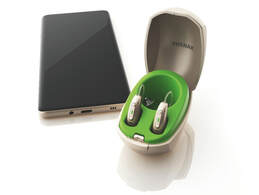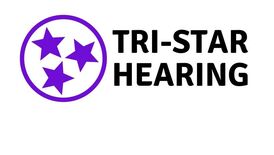 For many people, buying and replacing batteries is a part of using hearing aids. However, rechargeable batteries are changing the way we interact with hearing aids. Rechargeable hearing aids are a fairly recent and welcome addition to the hearing healthcare landscape. In the past, rechargeable batteries didn’t provide enough power in a small enough battery to be feasible for use in hearing aids but the days of regularly changing your battery are coming to an end. Depending on your hearing aid model and level of usage, your old standard zinc air replaceable batteries will need to be changed every three to ten days. Most hearing aids give you a signal when the battery is about to die. Recently, though, thanks to lithium-ion technology, rechargeable batteries are not only available, they are also long lasting and reliable for use in hearing aids! You’ll Never Want to Go Back The days of changing your battery every 3-10 days are over. Rechargeable batteries provide confidence and certainty to the wearer that their battery will be ready to use each morning after a night’s charge and hold a charge throughout the day. Just like you would charge your mobile devices overnight, the same practice takes place with a rechargeable hearing aid. You will never miss or pause an important or special moment due to having to change a battery when using rechargeable hearing aids. The personal benefits of rechargeable hearing aids depend on your preferences and lifestyle. However, the use of lithium-ion batteries is creating a world of possibility for hearing aid manufacturers and wearers alike. So, while you might find some of these benefits rewarding, others might not yet see value in going rechargeable. If you’re curious about what it means that rechargeable hearing aids have finally arrived, here are some serious benefits to using lithium-ion rechargeable batteries. No Extra Costs When hearing aids use replaceable batteries people often spend up to $100 per year on disposable batteries. You will never have to worry about not being able to get more hearing aid batteries or deal with shipping and handling costs. With rechargeable batteries the battery is built into the unit, and they can be recharged as many times as you need. Don’t Be Caught Off-guard Once you establish a routine, you’re less likely to get caught off-guard with a dead battery on the go. All you have to do is plug in your hearing aid in every night the way many people already plug in their smart phone when they go to sleep at the end of the day. Disposable zinc-air batteries don’t offer the same protection. They can run out anytime, with little warning beforehand. You will no longer have to carry backup batteries everywhere you go or worry about them running out. Better Performance in Cold Weather Zinc-air disposable batteries struggle to function properly in cold weather. The lack of moisture and low temperature zaps the batteries power quickly, draining your hearing aids and causing issues with the sound quality. Rechargeable hearing aids are becoming extremely popular in areas that experience extreme winters since they’re more cost effective and easier to use. Lithium-ion batteries suffer little to no loss in cold weather. Environmentally Safer While it’s important to state that lithium-ion batteries must be properly disposed of when you get rid of your hearing aids, they can also be recharged thousands of times. Compared to zinc-air batteries, which can only be used once and tossed out and end up ultimately in landfills. More Accessible for Older Users Many older wearers complain that the process of buying and replacing batteries is taxing on them. They might not have the means necessary to run to the pharmacy and buy batteries, and those with motor-control issues might struggle to open the battery compartment. With rechargeable hearing aids, this troublesome process is completely cut out. Energy Efficient A fully charged Lithium-ion battery can last the entire day, which is 19 hours of battery life. Instead of buying more disposable batteries, you can simply put your hearing aids in their charger at the end of the day. By: Dr. Timothy Teague, AuD at www. hearingconsultants.com Dr. Teague earned his Bachelor of Science Degree in Hearing, Speech and Language from Ohio University and his Doctoral Degree in Audiology from The University of Louisville. He is an active member of the American Academy of Audiology and the Ohio Board of Audiology.
1 Comment
|
AuthorJamie Martin, NBC-HIS Archives
September 2023
Categories |
Proudly powered by Weebly

 RSS Feed
RSS Feed